Description
Risnia is an antipsychotic medication used for the treatment of schizophrenia. It is used as monotherapy or adjunctive treatment with lithium or valproate to treat acute manic or mixed episodes related to Bipolar I disorder. Risnia is also effective in treating irritability associated with autistic disorder.
Product Description
— Risnia should not be used in patients hypersensitive to Risperidone or other medicine ingredients.
— The medicine should cautiously be used in patients with cerebrovascular events, including stroke in elderly patients with dementia-related psychosis. Risperidone is not approved for use in patients with dementia-related psychosis.
— Caution should be taken in case of neuroleptic malignant syndrome. Manage this condition with immediate discontinuation of Risnia and close monitoring.
— Atypical antipsychotic medicines, including Risperidone, have been associated with metabolic changes that may increase cardiovascular risk. These metabolic changes include dyslipidemia, hyperglycaemia, and weight gain.
a. Hyperglycaemia and diabetes: Monitor patients for symptoms of hyperglycaemia and weakness. Keep a close eye on blood glucose levels in patients with diabetes or at risk for diabetes.
b. Dyslipidemia: Undesired changes have been noticed in patients treated with antipsychotic drugs.
c. Weight gain: Significant weight gain has been observed. It is important to monitor weight gain.
— Use in pregnancy may cause withdrawal symptoms in neonates with third-trimester exposure. In patients with renal and hepatic insufficiency, a lower starting dose may be appropriate in some patients.
— The safety and effectiveness have not been established in patients less than 18 years of age. Due to central nervous system effects, use caution when administering other centrally acting medications. Avoid alcohol consumption.
— Also, let your doctor know if you are using cimetidine, ranitidine, clozapine, fluoxetine, and carbamazepine.
— Orthostatic hypotension associated with dizziness, bradycardia and syncope may occur, especially during the initial dose titration with Risnia. Be cautious if you have cardiovascular disease.
— Use the medicine with caution when operating machinery, including automobiles.
Side Effects
The most common side effects reported in clinical trials in patients with schizophrenia were headache, dizziness, fatigue, Parkinsonism, dyspepsia, weight increase, pain in extremities, dry mouth, sedation, and anaesthesia. The commonly reported side effects in patients with bipolar disorder were weight increase and tremors, and Parkinsonism. Talk to your doctor immediately if these become bothersome or persist for longer.
How to Use
In adults with schizophrenia, Risnia may be given once or twice a day. Doctors usually initiate treatment with 2 mg per day. The dose may be increased on the second day to 4 mg. From then, the dosage of the drug can be maintained unchanged if advised by a doctor. Most patients using Risperidone benefit from its daily dose of 4 mg. In some patients, a lower starting and maintenance dose may be appropriate. Risnia is well tolerated by the elderly. Talk to your doctor to find appropriate doses for yourself.
In patients with bipolar mania, Risnia should be administered on a once-daily schedule, starting with 2 mg. If required, dose adjustments should occur in dosage increments of 1 mg daily. Normally a dosing range between 2 and 6 mg per day is recommended. If you have any doubts related to the use of Risnia, please consult your doctor.


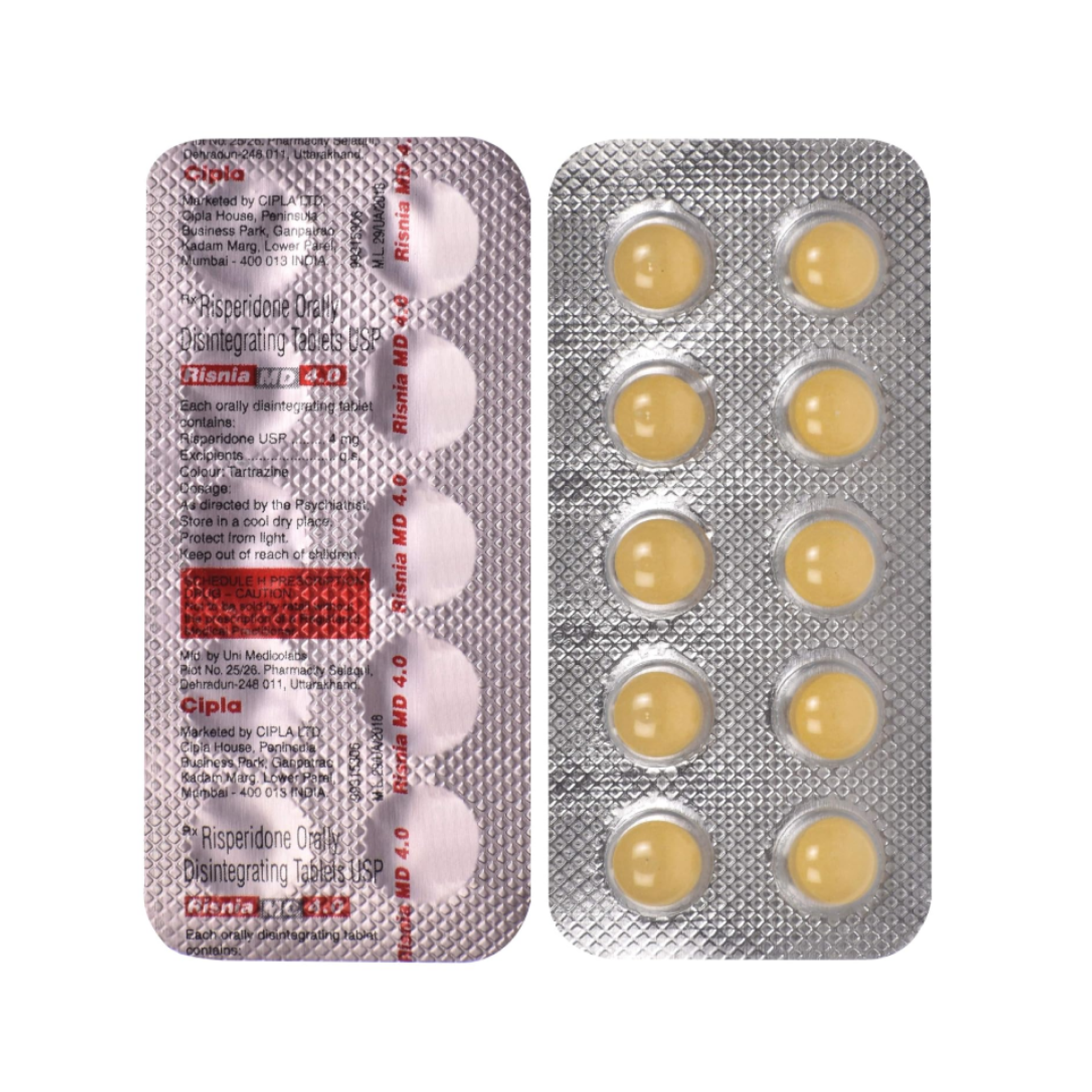
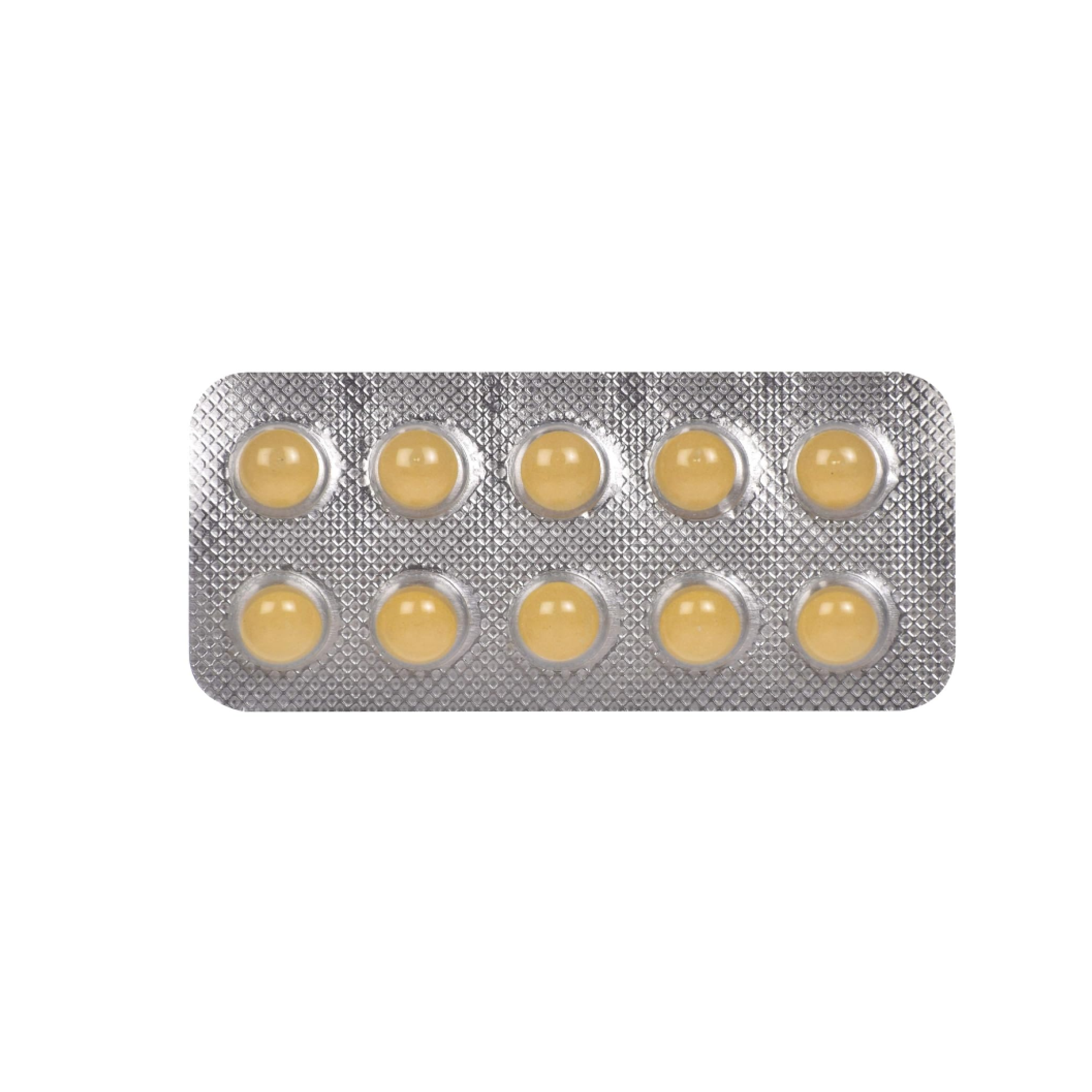
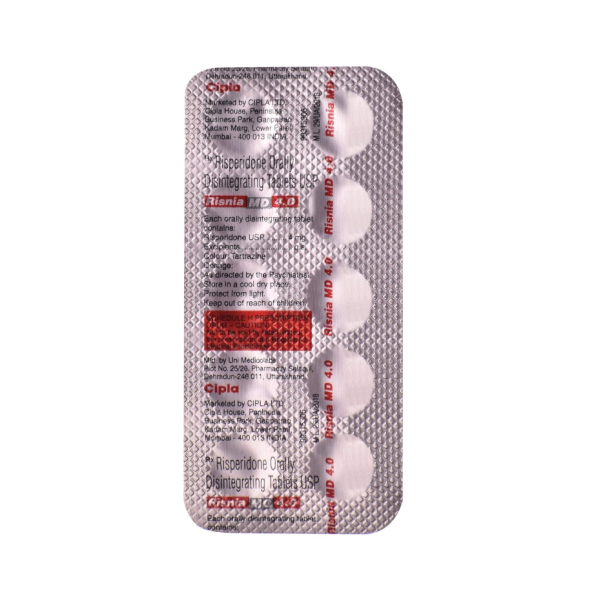
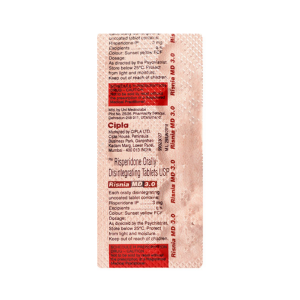
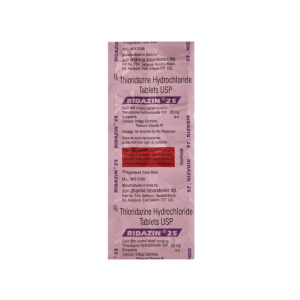
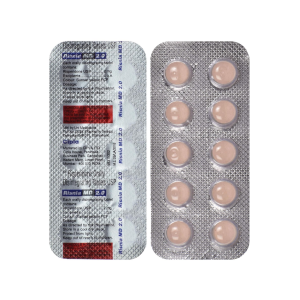
2 reviews for Risnia md 4mg Tablet
There are no reviews yet.